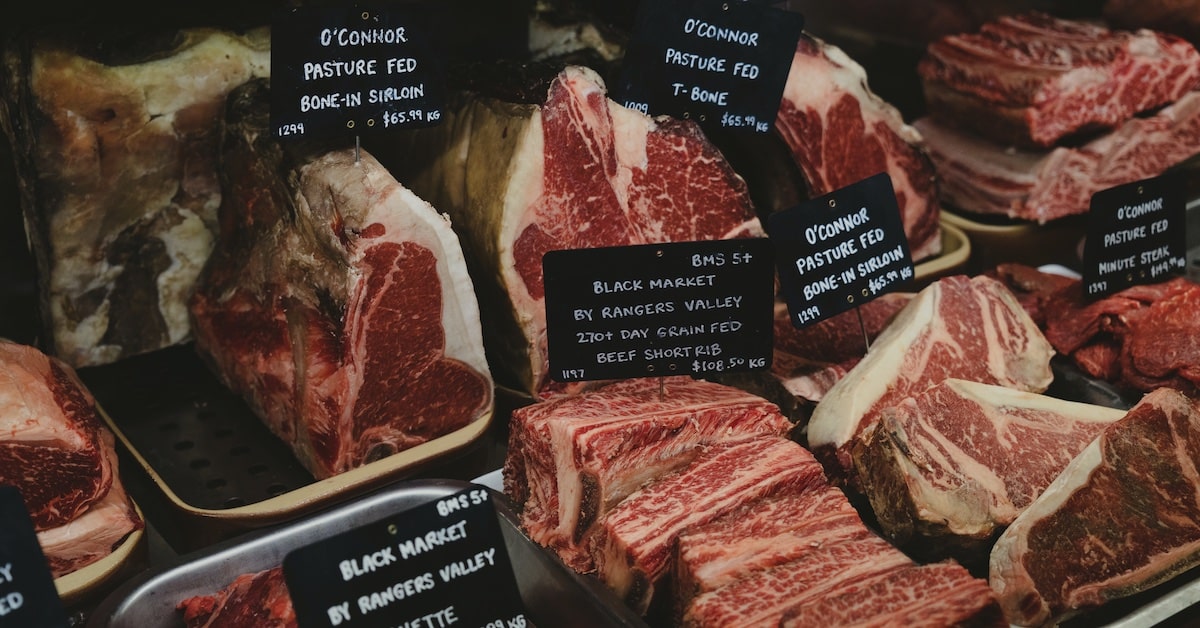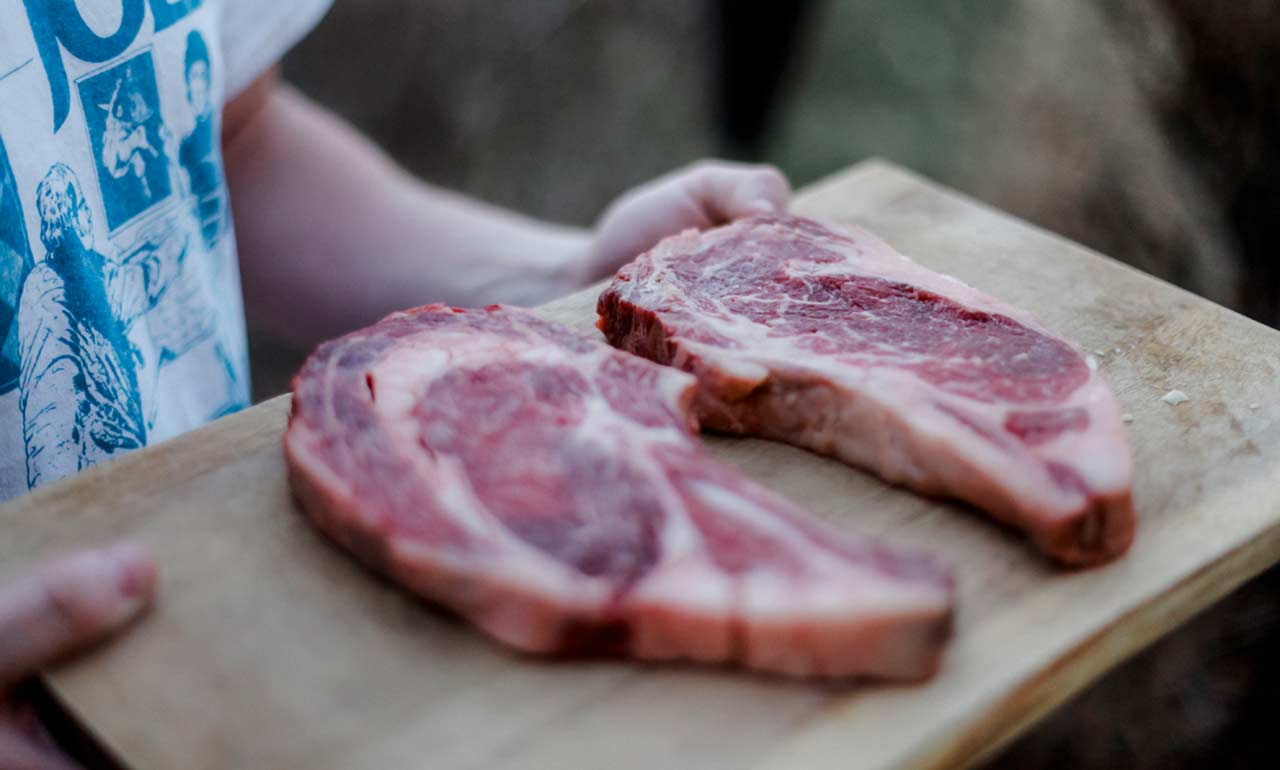Bagley Meat Market Edwardsville IL – Your One-Stop Shop for Fresh and Quality Meats
Bagley Meat Market Edwardsville IL – Your One-Stop Shop for Fresh and Quality Meats
Blog Article
Why Buying at a Local Meat Market Guarantees Fresh, High-Quality Cuts
Purchasing at a local meat market offers distinct advantages that commonly go unnoticed by consumers accustomed to bigger retail chains. These markets offer direct accessibility to fresh, high-grade cuts, an outcome of decreased transport time from farm to counter. This not just enhances flavor but likewise supports neighborhood farmers, promoting neighborhood connections and sustainable practices. Moreover, strenuous top quality control measures make certain that each acquisition meets high requirements of safety and security and quality (bagley meat market edwardsville il). Yet, the ramifications of choosing neighborhood prolong beyond prompt benefits, motivating a better assessment of what this choice genuinely means for both customers and the neighborhood economic situation.
Benefits of Regional Sourcing
In the realm of food purchase, the advantages of neighborhood sourcing stand apart plainly. By buying meat from neighborhood markets, customers acquire straight accessibility to products that are usually fresher and much more tasty than those found in bigger, business supermarkets. Regional sourcing minimizes the moment and distance food travels from farm to table, which not just boosts taste but likewise maintains dietary value.

In addition, regional sourcing typically supplies openness relating to the origins of the meat. Customers can ask about the farming techniques utilized, animal welfare standards, and whether the meat is organic or grass-fed. This details equips customers to make informed choices aligned with their worths.
Quality Assurance Requirements
Local meat markets commonly comply with extensive quality assurance standards that make certain the products offered meet high security and freshness benchmarks. These requirements typically incorporate various stages of the meat production procedure, from sourcing to handling and storage space.
First, regional markets often develop rigorous distributor requirements, making certain that only reputable farms and producers are made use of - bagley meat market edwardsville il. This decreases the chance of contamination and advertises higher pet welfare criteria. Furthermore, many regional meat markets execute routine inspections to verify that the meat is refined under sanitary problems, additionally reducing health dangers
Temperature level control is another essential aspect of quality control. Neighborhood meat markets frequently keep an eye on refrigeration systems to maintain optimal storage space temperature levels, making certain that meat remains fresh and risk-free for usage. Furthermore, the implementation of traceability systems permits markets to track the origin of their products, offering transparency and accountability.
Last but not least, team at local meat markets are often educated to recognize indicators of spoilage and recognize proper handling strategies. This commitment to quality assurance not only boosts the total requirement of the meat but also promotes consumer depend on, making regional meat markets a trustworthy resource for top notch cuts.
Supporting Local Farmers
Sustaining neighborhood farmers is important for cultivating a lasting food system and enhancing community durability. When customers pick to patronize neighborhood meat markets, they straight add to the livelihoods of farmers in their region. This not only sustains the neighborhood economic situation but additionally strengthens the agricultural field, guaranteeing that it continues to be dynamic and sensible.


Additionally, sustaining regional farmers promotes a sense of area and connection between producers and customers. It urges openness in food sourcing and infuses trust, as clients can develop relationships with the weblink people that raise their food. This direct connection eventually leads to a much more involved and informed public, which is essential for advocating for lasting agricultural techniques in the future.
Sustainable Practices
Lasting practices in meat markets play an essential role in advertising environmental stewardship and ensuring pet welfare. Regional meat markets frequently prioritize sourcing their products from farms that apply honest and lasting farming techniques. These practices consist of rotational grazing, which helps preserve dirt wellness and minimizes carbon emissions, together with minimizing using anti-biotics and hormones in animals.
Furthermore, regional meat markets commonly highlight openness in their supply chains. Clients are given with information pertaining to the origin of their meat, allowing them to make educated choices that line up with their worths. By supporting regional farmers that practice sustainable techniques, consumers add to the preservation of biodiversity and the reduction of transport discharges connected with long-distance meat circulation.
In addition, numerous neighborhood meat markets engage in waste decrease approaches, such as utilizing every part of the pet and promoting off-cuts that could otherwise go unsold. By fostering a much more sustainable technique to meat consumption, these markets not only supply top notch products however additionally add favorably to the atmosphere and animal well-being. Essentially, purchasing at a local meat market aligns customers with a broader movement in the direction of liable and moral food sourcing.
Customized Client Service
Purchasing at a meat market frequently encompasses even more than just the items offered; it is additionally regarding the experience and the relationships constructed between clients and team. Customized customer support is a hallmark of neighborhood meat markets, setting them aside from larger grocery store chains. Well-informed staff make the effort to recognize specific consumer preferences, making sure that each go to is customized to particular demands.
Customers profit from experienced suggestions on cuts, food preparation methods, and prep work tips, cultivating a sense of count on and loyalty. This personalized communication enables consumers to ask inquiries and seek referrals, causing educated acquiring choices. Employee usually bear in mind normal customers and their preferences, producing an inviting ambience that grows neighborhood connections.
In addition, individualized service reaches special demands, such as personalized cuts or certain preparation methods, look at this web-site which bigger merchants may not fit. This level of focus strengthens the commitment of neighborhood meat markets to high quality and customer satisfaction.
Essentially, personalized client service not just improves the purchasing experience however additionally makes sure that customers leave click for more with the best items matched to their culinary needs, making every check out a rewarding one.
Final Thought
Supporting regional farmers fosters community relationships and enhances the neighborhood economic climate, while sustainable techniques contribute to ecological stewardship. In addition, individualized client solution improves the shopping experience, making regional meat markets a preferred choice for consumers seeking both top quality and honest considerations in their food sourcing.
The implications of picking local expand beyond immediate advantages, motivating a closer examination of what this choice absolutely means for both consumers and the regional economic climate.
Sustaining local meat markets additionally contributes to the local economic situation. Local meat markets frequently keep track of refrigeration systems to preserve optimal storage space temperatures, ensuring that meat remains safe and fresh for consumption.Neighborhood farmers are frequently a lot more attuned to the details demands of their communities, growing crops and elevating livestock that straighten with neighborhood preferences and choices. Sustaining neighborhood farmers fosters area relationships and enhances the regional economic situation, while sustainable techniques add to ecological stewardship.
Report this page